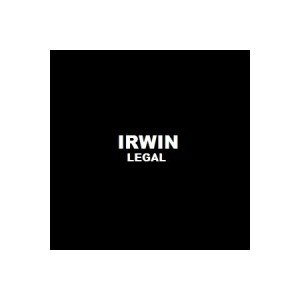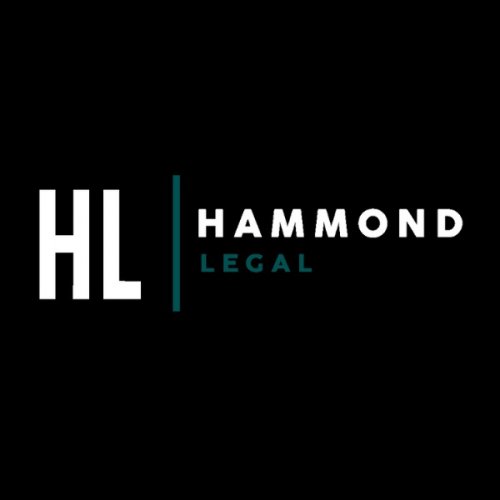Best FDA Law Lawyers in Australia
Share your needs with us, get contacted by law firms.
Free. Takes 2 min.
Or refine your search by selecting a city:
List of the best lawyers in Australia
About FDA Law in Australia
FDA Law in Australia refers to the legal framework governing the regulation, approval, and oversight of food, drugs, and related therapeutic products within the country. Unlike the United States where the Food and Drug Administration (FDA) is the central authority, Australia’s equivalent regulatory body is the Therapeutic Goods Administration (TGA). The TGA, along with Food Standards Australia New Zealand (FSANZ), oversees the safety, quality, and efficacy of pharmaceuticals, medical devices, biologics, and food products. FDA Law in this context involves navigating complex legal requirements to ensure compliance with Australian national laws and standards.
Why You May Need a Lawyer
Many individuals, businesses, and healthcare providers seek legal advice due to the complex nature of FDA Law in Australia. Common situations where legal expertise is beneficial include:
- Registering new pharmaceutical or medical devices for sale in Australia
- Ensuring ongoing compliance with Australian regulations for existing products
- Responding to regulatory enforcement actions or recalls
- Handling advertising and promotional restrictions for therapeutic goods
- Advising on labeling, packaging, and food safety requirements
- Dealing with cross-border import and export controls for therapeutic and food products
- Representing parties in appeals or disputes against regulatory decisions
Legal specialists can help clients understand their obligations, develop compliance programs, and represent them in interactions with Australian regulatory agencies.
Local Laws Overview
FDA Law in Australia is governed by several primary pieces of legislation and regulatory schemes. Key aspects include:
- Therapeutic Goods Act 1989: Governs the regulation of therapeutic goods (including medicines and medical devices) and creates the TGA as the principal regulatory authority.
- Food Standards Australia New Zealand Act 1991: Establishes FSANZ and sets out the standards for food safety, labelling, and composition.
- Australian Consumer Law: Regulates product claims, misleading advertising, and consumer guarantees related to food and therapeutic goods.
- State and territory laws: Supplement federal controls with local health, food, and drug regulations per jurisdiction.
- Import and Export Regulations: Additional requirements for cross-border trade in drugs, foods, and medical devices.
Manufacturers, importers, and distributors must engage with these laws to ensure products meet safety and quality standards before reaching Australian consumers.
Frequently Asked Questions
What are therapeutic goods?
Therapeutic goods include medicines, medical devices, and biological products intended for humans. These goods are regulated to ensure quality, safety, and efficacy.
Do I need approval from the TGA to sell new medicines in Australia?
Yes, new medicines and most therapeutic goods must be approved and listed on the Australian Register of Therapeutic Goods (ARTG) before they can be lawfully supplied.
How are food products regulated in Australia?
Food products are regulated under the Food Standards Code set by FSANZ, which covers labelling, composition, food additives, and safety standards.
What are the main compliance challenges for medical device companies?
Medical device companies must ensure that their products meet design, labelling, and performance standards as specified by the TGA, and must report any adverse events or product defects.
Are there penalties for non-compliance with FDA Law in Australia?
Yes, non-compliance can result in product recalls, fines, business restrictions, or even criminal charges depending on the severity and nature of the violation.
Can I advertise therapeutic goods to the public?
Advertising of therapeutic goods is strictly regulated, with restrictions on claims and required disclosures to prevent misleading or unethical promotion.
What should I do if my product is recalled?
You should notify the TGA or relevant state authority immediately, cooperate with recall procedures, and follow all mandated communication and corrective actions.
Do natural health products require TGA approval?
Most complementary or natural health products are classified as therapeutic goods and may require TGA listing, unless specifically exempt under the regulations.
How are imported food and medicine controlled?
Imported food and medicines must comply with Australian standards and are subject to inspection, registration, and potential quarantine by relevant authorities.
When should I seek legal advice in FDA Law matters?
Legal advice is valuable when launching new products, dealing with compliance investigations, responding to enforcement actions, or entering into regulatory disputes.
Additional Resources
For those seeking further guidance or assistance, the following resources are especially helpful:
- Therapeutic Goods Administration (TGA): Responsible for regulation of therapeutic goods including medicines, medical devices, and blood products.
- Food Standards Australia New Zealand (FSANZ): Develops food standards and coordinates food safety policies.
- Australian Competition and Consumer Commission (ACCC): Provides oversight of advertising, consumer protection, and product safety for food and health products.
- State and Territory Health Departments: Administer local health, food safety, and drugs laws within each jurisdiction.
- Australian Government Business.gov.au: Offers regulatory information for businesses involved in food, medicines, and medical devices.
- Legal Aid Commissions: Provide legal assistance and resources for individuals and small businesses navigating complex regulatory requirements.
Next Steps
If you believe you may need legal assistance with FDA Law in Australia, consider taking the following actions:
- Identify the specific area of concern, such as product registration, compliance, advertising, or responding to a regulatory inquiry.
- Document any communications with regulatory bodies and keep records of relevant product information or incidents.
- Reach out to a legal professional or firm with expertise in Australian FDA Law for an initial consultation.
- Prepare questions and background documents to discuss your situation and gain clarity about your legal position and options.
- Remain proactive in addressing compliance obligations to minimize risks and demonstrate commitment to regulatory standards.
Taking these steps will help you protect your business interests and ensure that your products meet all necessary legal and regulatory requirements in Australia.
Lawzana helps you find the best lawyers and law firms in Australia through a curated and pre-screened list of qualified legal professionals. Our platform offers rankings and detailed profiles of attorneys and law firms, allowing you to compare based on practice areas, including FDA Law, experience, and client feedback.
Each profile includes a description of the firm's areas of practice, client reviews, team members and partners, year of establishment, spoken languages, office locations, contact information, social media presence, and any published articles or resources. Most firms on our platform speak English and are experienced in both local and international legal matters.
Get a quote from top-rated law firms in Australia — quickly, securely, and without unnecessary hassle.
Disclaimer:
The information provided on this page is for general informational purposes only and does not constitute legal advice. While we strive to ensure the accuracy and relevance of the content, legal information may change over time, and interpretations of the law can vary. You should always consult with a qualified legal professional for advice specific to your situation.
We disclaim all liability for actions taken or not taken based on the content of this page. If you believe any information is incorrect or outdated, please contact us, and we will review and update it where appropriate.
Browse fda law law firms by city in Australia
Refine your search by selecting a city.

















